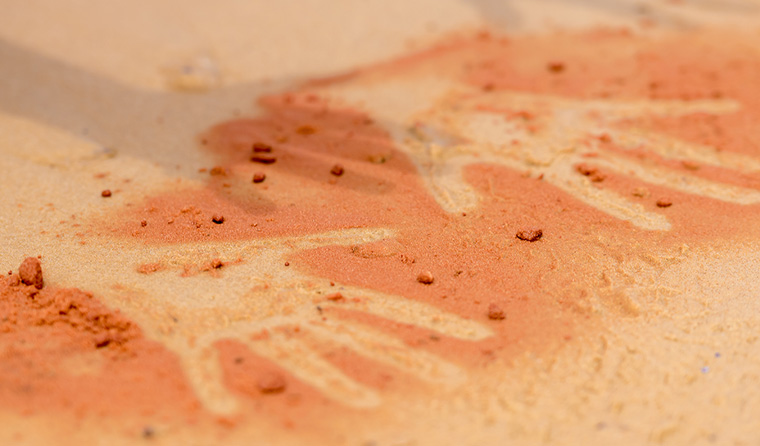News
Aboriginal and Torres Strait Islander health: Room for improvement
A new report card details how health indicators are performing – with mental health and incarceration rates of key concern.
 Aboriginal and Torres Strait Islander adult imprisonment rates increased by 72% between 2000 and 2019.
Aboriginal and Torres Strait Islander adult imprisonment rates increased by 72% between 2000 and 2019.
The Productivity Commission has released the most comprehensive overview on the wellbeing of Aboriginal and Torres Strait Islander people, the Overcoming Indigenous Disadvantage 2020 report.
The report measures what has improved, what still needs improvement and areas where no progress has been made, against 52 indicators since the last report in 2016. It outlines where further, or better, information is needed to assess how Australia is tracking.
Indicators include:
- governance
- leadership and culture
- early childhood
- education
- economic participation
- health
- home environment
- safe and supportive communities.
The report also features case studies with a specific focus on identifying arrangements that support shared decision-making between Aboriginal and Torres Strait Islander people and Australian governments.
The report follows the release of the
Closing the Gap National Agreement in July 2020, the first such agreement between governments and Aboriginal and Torres Strait Islander communities, as represented by the
Coalition of Peaks.
Productivity Commission Chair Michael Brennan said the report demonstrates that a better understanding of the knowledge and strengths of Aboriginal and Torres Strait Islander people is needed to improve outcomes.
‘Poorer outcomes are not due to people
being Aboriginal or Torres Strait Islander, but can be attributed to the additional personal challenges and structural barriers faced by many Aboriginal and Torres Strait Islander people,’ he said.
‘Removing these structural barriers is critical if the wellbeing of Aboriginal and Torres Strait Islander people is to improve.’
There is evidence of continued improvements in the report, particularly in the area of child mortality rates, which show a drop from 13 to five deaths per 1000 live births between 1998 and 2018.
There have been marked improved outcomes in education, with an increase in the proportion of Aboriginal and Torres Strait islander people aged 20–24 completing year 12 or above from 2008 to 2018–19, and the proportion aged 20–64 with or working towards post‑school qualifications almost doubling from 2002 to 2018–19.
Smoking rates have also improved, with a decrease in the proportion of Aboriginal and Torres Strait Islander adults smoking daily, from 51% to 40% between 2001 and 2018–19.
 The report is said to show that a better understanding of the knowledge and strengths of Aboriginal and Torres Strait Islander people is needed to improve outcomes.
The report is said to show that a better understanding of the knowledge and strengths of Aboriginal and Torres Strait Islander people is needed to improve outcomes.
However, outcomes for mental health and incarceration rates continue to perform at a below-acceptable level – a reminder that there is
still a way to go in closing the gap between healthcare inequalities.
The proportion of adults reporting high levels of psychological distress increased from 27% in 2004–05 to 31% in 2018–19. Rates of suicide and self-harm increased by 40% over the decade to 2018.
Aboriginal and Torres Strait Islander adult imprisonment rates increased by 72% between 2000 and 2019.
Campaigns such as
Raise the Age have helped to somewhat reduce incarceration rates for young people, the report shows.
There was a
decrease in the youth detention rate between 2014–15 and 2018–19, with the rate of people aged 10–17 in detention on an average day falling from 176 to 172 per 10,000.
But the rate of Aboriginal and Torres Strait Islander youth in detention is still 22 times than their non-Indigenous Australian counterparts, and those aged 10–17 made up
50% in detention in 2018–19.
The RACGP’s vision, as communicated in its 2020
Innovate Reconciliation Action Plan (RAP), is for a healthcare system free of racism. The college understands the
negative health impacts of racism and unconscious bias, and the
significant role that GPs play in both contributing to and tackling the problem.
In line with the RAP, the report highlights the continued need for high-quality, culturally responsive primary care that is accessible in supporting health improvements for Aboriginal and Torres Strait Islander people.
It also reinforces the need to consider the effects of colonisation, racism and policy decision-making that contribute to poor health outcomes.
Productivity Commission Commissioner Romlie Mokak said the outcomes in the report need to be understood in context.
‘This means understanding our shared history since colonisation and the impacts on Aboriginal and Torres Strait Islander people today,’ he said.
‘This edition of the report not only gives us a high-level picture of the wellbeing of Aboriginal and Torres Strait Islander people, but it also tells us where the barriers for positive change lie, and some of the things that might work to overcome these.’
Addressing the barriers for improving outcomes requires a collaborative approach.
This includes assessing:
- multiple personal risk factors, such as intergenerational trauma
- systemic and structural barriers in laws, policies and practices
- discrimination and racism through structural changes, and building knowledge and education.
Mr Mokak said shared decision-making through ongoing government investment, collaboration and coordination, and effective, culturally safe and locally relevant services are all central to improvement.
Log in below to join the conversation.
Aboriginal and Torres Strait Islander health Productivity Commission
newsGP weekly poll
Health practitioners found guilty of sexual misconduct will soon have the finding permanently recorded on their public register record. Do you support this change?